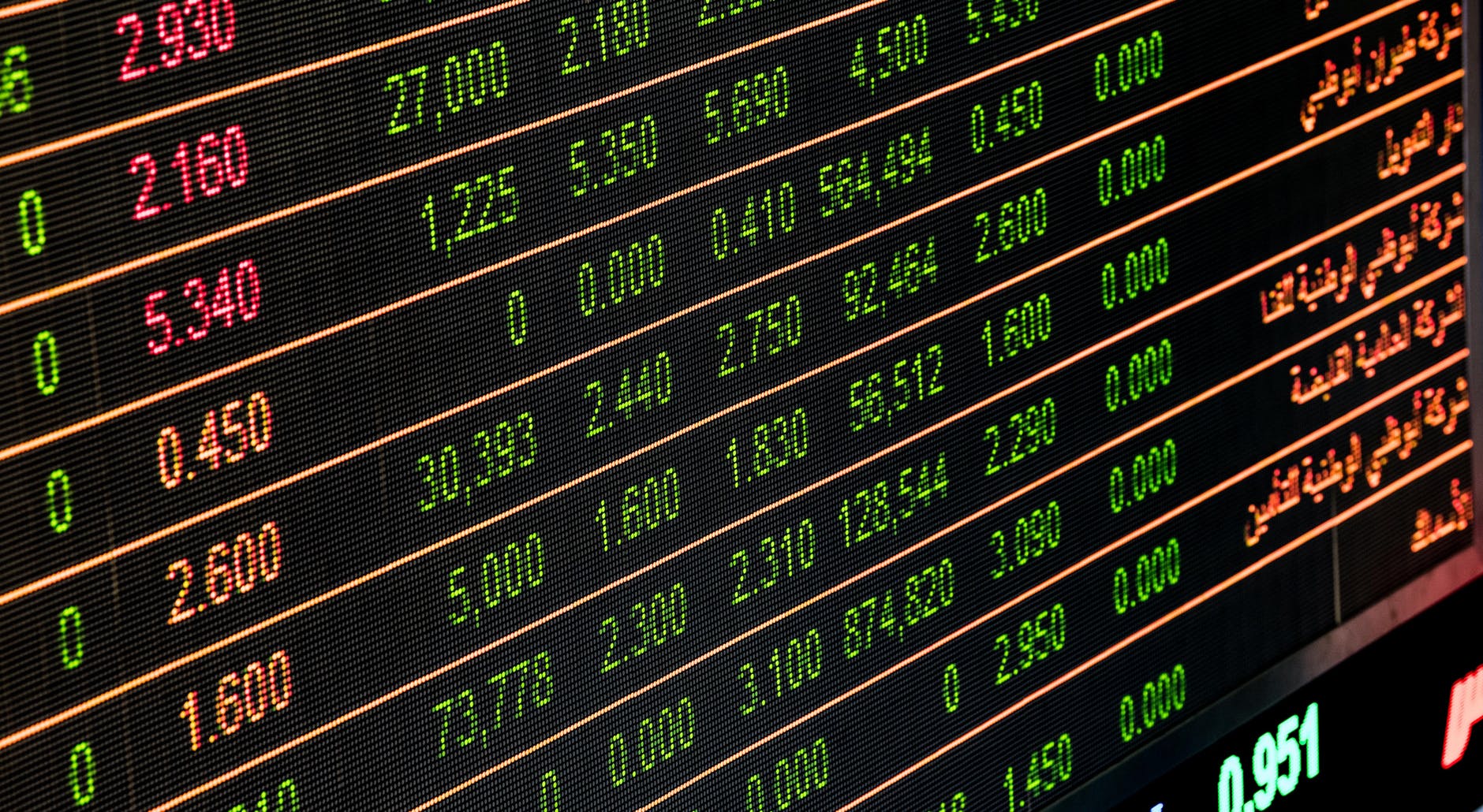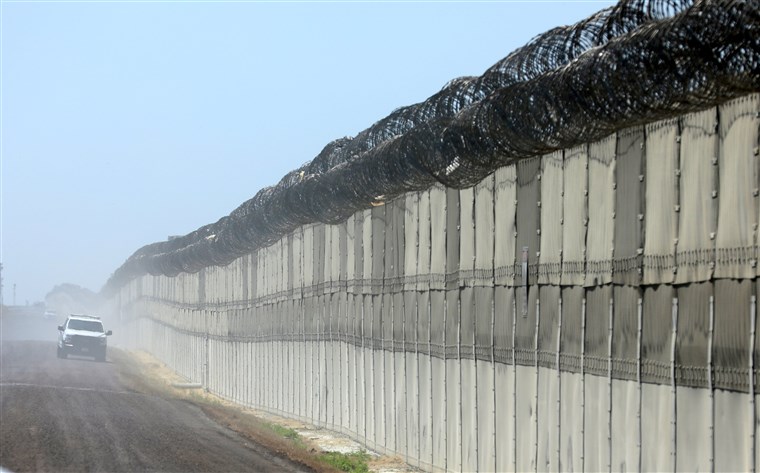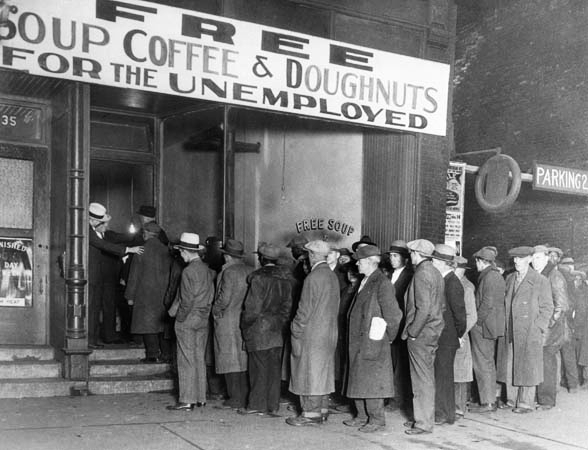What this contrarian investor is buying in Q3 2019
I don’t give personal financial advice. But what I will do is to open the kimono, so to speak, and tell you what I’m doing. Maybe history will prove me to be foolish or wrong, or some super genius or something, but I have no crystal ball. What I do have, however, is a sensitivity and observation of what is going on in the world and I use that directly to influence my own decision making process. I'll tell you what I'm doing here.

I’m not a speculator, but an investor. What is the difference? I’m not looking to invest in anything that doesn’t have at least a 12 month time horizon. I don’t have the mental energy, will or time to be an investing “day trader”. Sure, many people make a lot of money doing that, but I don’t. If I buy something, it is because I believe in it. Not because it is some super opportunity or some FOMO (Fear of Missing Out) thing with me. It is because there is something real there that makes it look like a decent opportunity.
Also I’m a contrarian. My goal is to get “ten baggers” - that is a 10x return on my investments over time. That time could be 10 years, but it could be less. I want to be able to look back at decisions I’ve made and longer time horizons and feel good about them. That’s what I did with Bitcoin when I bought it at $7 each back in 2011 and sold it in early 2018. That’s what I do with real estate, although I would never sell a performning real estate asset.
The inputs
I’m seeing some interesting & predictable events and factors I’m keeping an eye on.
- The equity markets & the 2020 election
One interesting observation that I’ve seen is that the current US president, Donald Trump, uses certain key statistics to support his claim as being “the guy” to make American’s wallets fatter. There are two key indicators that he uses for this:
- The DJIA
- The Unemployment Rate
These are fictional numbers that don’t represent the health of an economy. The DJIA is simply a volume number based on trading in the markets. When the stock price of something was an indication of future value based on the performance of the company, it would be fair to say that the number had some meaning. But there are two leading factors that change the market by 10-20% and they are the Federal Reserve Base Interest rates and the US-China Trade War.These two major indicators can be manipulated by President Trump - either overtly or covertly. The Federal Reserve Base Interest rate was never supposed to be a partisan number, as the Federal Reserve are supposed to be a private cartel of bankers that only use real data as inputs to determine where they set base interest rates. But the US government and politics play a huge role in where the interest rates are going. When the Fed Reserve raises rates, the stock market typically falls. When they lower rates, it will rise. When they do nothing, the markets usually rise because no one in business likes uncertainty. Second, the US-China Trade War is resulting in inflation. The additional tarrifs (or taxes as they should be better labelled) are put on US consumers, which means that we all pay more for stuff. By implementing these tarrifs we are going to have less money in our pockets, and that causes further uncertainty and reduces the DJIA valuations. But this is (again) completely in the hands of the US President. He can implement or remove tarrifs. He can raise them or lower them. And China will reciprocate with the same on their end, so the ultimate levers can be pulled here by the president.If faced with an uncertain election coming up, it would be fair to speculate that the President will setup the economy for the US to be in the most positive light as a factor for re-election.But this is where I think it could all go off the rails.....The interest rates are so low right now that to the average US consumer or mortgage holder, a rise of 1% interest won’t actually have a major impact to their spending or savings rate. In fact, because US interest rates are so low, there are few low risk saving investments left now, forcing retirees to put money into riskier and riskier asset classes (such as equities) in order to make enough interest on their savings. We know that the stock market “crashes” (or overly corrects) based on news & perceptions, as we saw in 2001, 2008, etc. We also know that general markets cycle and that our equities markets are in uber-high range and have been for a long time. This tells me that any further artificial influence in the markets will result in a potential collapse or major correction post 2020 election. As an investor and not a speculator therefore I would avoid equities like the plague. Not only would I be buying into something at an all time high price point (really bad idea for someone who is in the “buy low, sell high” mindset), but it is fragile and being influenced by artificial manipulation.
- US debt levels
The cost of interest as a portion of GDP is being kept artificially low by the Federal Reserve right now, but unless that debt load reduces, any upward movement in interest rates will put further strain on the already overburdened US debt load. It has been like this for decades, but rather than reversing the trend, we are now pililng on $1 trillion a year as a deficit, which further means that the interest rates on this money must be kept low.
The result of this is that a rise of 1-2% in interest rates, as it returns back to “normal” levels - levels in which savers could obtain some interest on their money at relatively low risks, would mean the US government budgets would be slashed so hard to pay the interest on the debt levels. That mans lower defense spending, lower social program money, etc.
But counter to this, we have competitive political parties stating more “free stuff” for US citizens - free healthcare, free education, guarantees for social security & Medicare payments, etc. Math doesn’t lie here - unless you tell the people the truth that this stuff will cost money that all of us will have to pay for, then this “magic” could be a serious disaster. I want to see a candidate come out and say that right now employers are paying $20K per year per employee to fund their health insurance costs, or that self-employed people are paying $1500 a month in premiums and that although these costs won’t change, they will just become taxes rather than insurance premiums. I mean that is fair and it is saying that you won’t pay any more for that. Sure, that’s fine. But if you mention taxes are going up, and you don’t say “But your health insurance premiums will go down, therefore a net $0 out of your pocket”, it requires someone with insight to be able to understand this and there doesn’t seem to be any willing participants there. Everyone votes based on 20 world soundbite messges rather than deep thought, so I see politicians promising a lot of free stuff, being unable to deliver on it, and we stay the status quo here.
Meanwhile the debt levels continue to rise. Savers get no decent interest rates on their savings and the Federal Reserve continue to reduce down the tools they have to settle economic fluctuations. Meaning the next correction will be harsher and harder for longer because the toolset is reduced. Efficacy matters here - if you are very low in interest you can’t go much lower. This negative interest rate thing I’ve seen is a disaster of math and won’t work.
What will be the results here? Well this goes to manipulation of inflation rate. The cost of living in the US is super high. Sure, it isn’t the highest in the world. But when other countries are 10x cheaper for the same goods & services, and those countries are within driving distance to the USA, I see further migration of US persons south - particularly as they can’t get any decent return on their savings in the USA. If you can’t increase revenue, your only option is to reduce expenditure, which tells me further migration of Baby Boomers to Mexico or other parts of Latin America.
Ask yourself this.... Is it costing you more, less or the same, to buy lunch out each day that it was 12 or 24 months ago? And if you look at your average spend here, what % difference are you seeing? I’m seeing about a 20-30% increase myself. That doesn’t fly with the 1-2% inflation rate that the Federal Reserve is spouting, so again I find it fiction that the cost of funds are being manipulated here with magic math rather than sound economics.
- AI & Automation
We are at the early stages of disruption here, but we are seeing a reduction in hourly worker rate - particularly in jobs that were high unionized, such as manufacturing, because of the supply & demand curve in employment. If you need fewer workers, hourly rates typically go down and the power of unions is reduced since the employers don’t need as many. This means that in order to bring in the same income, a family has to generate income from multiple sources. The father drives an Uber on the weekend, the mother is forced to go back to work, etc.
But this would be shortlived as each new working opportunity (that may artificially affect unemployment rates because one US adult is now having 2 jobs) will find it harder and harder to find new employment.
Where will additional income come from? There is still some disruption left in digitization of roles, and possibly having blog or website might bring in some revenue, but it is lower. This is based on the attention span of readers which depends purely on content quality. If people think they can make advertising revenue by producing low grade YouTube videos as an income source, they will be disappointed. The more “spam-like” content that is out there, the lower the readership.
I’ve seen that with the Steem platform, in particular D-Tube (a blockchain based competitor to YouTube). What started out as a promising democratized way to publish content and get paid turned into a spam-fest for lower economic folk with a cell phone to make low grade video content and try to monetize it. With 7.3 billion people on this planet, and the third world gradually getting Internet access, they have destroyed the efficacy of D-Tube to the point where it is just a big pile of spam now. Unfortunate, but predictable.
So I see over the next 5 years the true impact of more automation & AI affecting economics directly.
- Housing
Rents will continue to rise. This is simply because early entrants into housing ownership will be denied access. Sure, it is great to have lower interest rates for mortgages. But if you are carrying student loan debt and your ability to service the mortgage is minimized, then you won’t get approved for that mortgage. Unless we open up sub-prime lending or some other version of this, home ownership will continue to fall.
This means landlords will continue to raise rents because of the supply/demand curve. And with very low interest rates, there has never been a better time to be a landlord. You can get access to capital at incredibly low cost and then purchase property and rent at high rent levels.
Two things will occur from this. There will be migration movements away from cities where rent levels are super high to places where rents are lower. We are seeing this in Phoenix and Las Vegas right now, much like we saw in 2003 or so.
Property prices will go up as investors force pricing upwards based on demand. This will likely be offset by reduced numbers of foreign buyers into the market, but if there is any downward movement in equities, that money will flee for safer havens and real estate is one of the normal safe havens that benefits from an equities crash or correction.
- Safe haven assets
We are seeing pricing increases in alternative “safe haven” assets, particularly Gold & Silver. This has been impacted by other countries buying all-time high volume purchases to bolster their own economies. But with a strong $USD as the world currency, any risks that other countries have against it seems to be underpinned by the default behavior that they are buying more gold. This is particularly true in China & Russia right now.
The gold price per ounce is manipulated but these meta level factors cannot be ignored which is why we are seeing a $1,500 per ounce gold price. Will this go up further? I’m expecting it to. But again it is being manipulated more by how many investors want to keep their money in equities as they expect some massive return there. But with an all-time high and long overdue for correction equities market, the natural action/reaction thing here is that a downward correction in equities will result in an upward gold price.
It comes down to if and when you believe we will see an equities correction. For me, I would say “Any day now” but I would counter this by saying that I don’t believe that the current US administration will let that happen before the 2020 election. They will continue to manipulate inputs to keep the market on track, but post 2020, I predict a bloodbath. The run to Gold will happen, which then puts me in a position where I don't want to regret not buying it now.
- International diversity
This is a big one for me. Since 2016, the general cultural shift has been “America first”. The push to “Build the Wall” and MAGA has meant that other countries were ignored. Those countries then saw America turning their back to them, and this was further underscored in defense policy, particularly in the middle east region.
Many countries that had relied on trading with the USA have felt that this is a riskier move, and have pivoted to China as a major trading partner. Australia is a perfect example of this. This reduces the US position of influence in the world and raises China’s. It also means that those countries have economies that are likey to grow but based on China’s growth, whereas the US economy stalls.
With the $USD at very high levels right now, the exchange rate benefit in international currency conversions favor USD holders. If you can’t get a decent interest rate on your money in the USA, you have immense buying power with it for real assets overseas. But while the average US person is being sold lies on international travel, getting a passport, etc. it means for the contrarian investor the opportunities are outside of the USA if you are willing to go there and find them.
I also see a consolidation of US trading within the local regions, particularly as we wait for the USMCA to be ratified. This will occur simply beacuse of China’s immense trading partnerships that it is building with other countries and our own lack of willingness to embrace with other countries for trade. In the end, we will be forced to buddy up with local neighbors and form stronger local trading unity, meaning that US money effectively will overflow our borders to our neighbors.
- Crypto currency
The biggest obstacles standing in the way of the advancement of crypto is government embrace of it. Recently we saw China openly embrace blockchain and crypto currencies, which helped boost and maintain the price of Bitcoin to high levels. This puts further pressue on the USA to do the same because they don’t want to be left out here.
However the risks of mining centralization still remains and this will mean that although I see Bitcoin as the “Digital Gold” equivalent, it will require a strong constitution to use it. There are sidechain networks such as the Lightning Network that are needed to allow commerce to participate with Bitcoin, and I do see this happening to some degree. But it is very slow, and the longer it takes to gain traction the more likely it will be either stopped outright by government intervention, or another currency will emerge to gain favor.
That said, there are some undeniable truths here that you can’t ignore. As digital systems generate wealth through the provision of digital services, they need to enact digital payments that are innexpensive and fast. The costs of on/off ramping from Fiat currencies to crypto will make it impossible to do this, so I predict more and more commerce to remain WITHIN the crypto space, meaning that eventually you will be able to make Bitcoin and spend Bitcoin rather than on/off ramping it to $USD.
And the bigger influencers of this will not come from within the USA. They will come from the emerging economic sectors that have less and less faith in the Good Faith & Trust of the US Dollar while the general social culture undermines them, or disrespects them. Yes, the “shithole” countries may in fact rise up and threaten the power of the US Dollar by just not using it and embracing crypto currencies.
Countries that also have massive parts of their GDP based on money transmission (such as Mexico), will likely be the ones to really back crypto because they have the greatest to gain from it. And with a prediction of more, rather than less, internationalization going on, I see this as an innevitable rise in crypto adoption rather than a reduction in it.
Which crypto currency? I believe that the markting power of Bitcoin will prevail. Yes, Facebook are trying to release their Libra currency but I really don’t think that this will prevail. I believe that it does, however, create a “bad guy” in the crypto space for US lawmakers to focus on but while they are doing that, they will likely allow Bitcoin to get a pass and move forward since they can’t really control it anyway. They get what they want - they get seen to be supportive of fighting the terrorist money machine, but they eventually just realize they can’t win a fight against blockchain and, like the banks, would be better to buddy up with it rather than to try and take it on.
So what am I doing?
First, I’m buying Gold. I started this a few years ago when gold was at $1,185 an ounce. And I’ll continue as the opportunities present to get in at discounted rates.
Second, I’m getting Mexican residency and buying Mexican real estate. This was accellerated recently with the news in the US media of a family of 9 being slaughtered in Sonora, Mexico by being in the wrong place at the wrong time with a drug cartel war going on. This sends the fear of god into most Americans about going anywhere near the border and further underscores the commander in chief’s attempt to portray Mexico as a hell-hole that we should never step foot in. What a great indicator to a contrarian though - I go where others fear to tread. So I’m going all in. A 20:1 Peso to USD rate doesn’t hurt either. I sense a mass movement of “Boomers” down south as they find it harder and harder to exist in the USA on social security, as inflation rates continue their upward movements, and yet I see a stronger and stronger Mexican economy and wealth distribution.
Third, I’m keeping my eye on Australian real estate as I predict a crash there. Their economy has had a 27 year bull run and that started to come off the rails over the past 2 years. Although there has been some correction in overpriced real estate values in Sydney & Melbourne, I believe we haven’t seen the full extent of this yet and it really comes down to China and whether they will increase or decrease demand for Australian exports. Again, the exchange rate is a major factor here. Currently as I write this 1 $AUD is worth $0.68 USD. I am predicting for myself that this price will fall lower than $0.60 and possibly into the low $0.50 range as it has in the past. This means the buying power of $USD will be high, and if the market crashes as I believe it might, the acquisition cost of Australian real estate will be super low.
Fourth, and this is a big one for me. I am looking at supply chain investments with US & Mexico. This is being driven purely by freeway investments I’ve been watching on the Mexican side of the border, particularly with the I-15 freeway in Mexico being rebuilt, along with freeway runs from Guadalajara to the Pacific ocean. Although there’s a lot of jungle and mountains to get through, if there is a way to get large trucking to the Pacific coast, the Mexican government will likely invest heavily in sea port construction. We’ll see how that plays out, but right now I predict a Mexican “Belt & Road” initiative here. This is then further supported by the proposed I-11 US freeway initiative that begins in Nogales, Arizona and is designed to transport goods & services all the way to Canada. I’m closely watching the proposed road maps for real estate acquisitoin along the I-11 freeway corridor.
And finally Fifth, I’m getting back into Bitcoin purchases. I’m hoping for a price drop to $7,000 or so, but as it goes down I’m incrementally buying it. Why? The innevitable move towards a digital currency that can support digital commerce. Not because I see it as “digital gold” but more as the raw material that will power the digital economy.
So that’s it - real estate, Gold & Bitcoin & supply chain investments. The best thing that could happen for me is a recession. It will drive down pricing like crazy. I’ll do some small acquisitions now, but am looking towards 2021 as the big opportunities based on the massively overpriced DJIA and equities markets.
What should you do?
You do you. That’s it. What I’m not doing is to buy into the US stock market in any way. But again, you do you.
Seriously, you own your own decisions here. I am not your Certified Financial Planner, or have any right to tell you where to invest your hard earned money. So don't listen to what I'm doing if you think it has any influence over your own personal decisions. I'm just telling you what I'm doing.
What I would suggest, however, is if you don’t already, get serious about getting 2nd passports and residencies. It is prudent and will allow you more flexibility with international purchasing. Plus you really will need it if the US economy has a SHTF moment. 2021 will be an interesting year, if we don’t see that occur beforehand.



